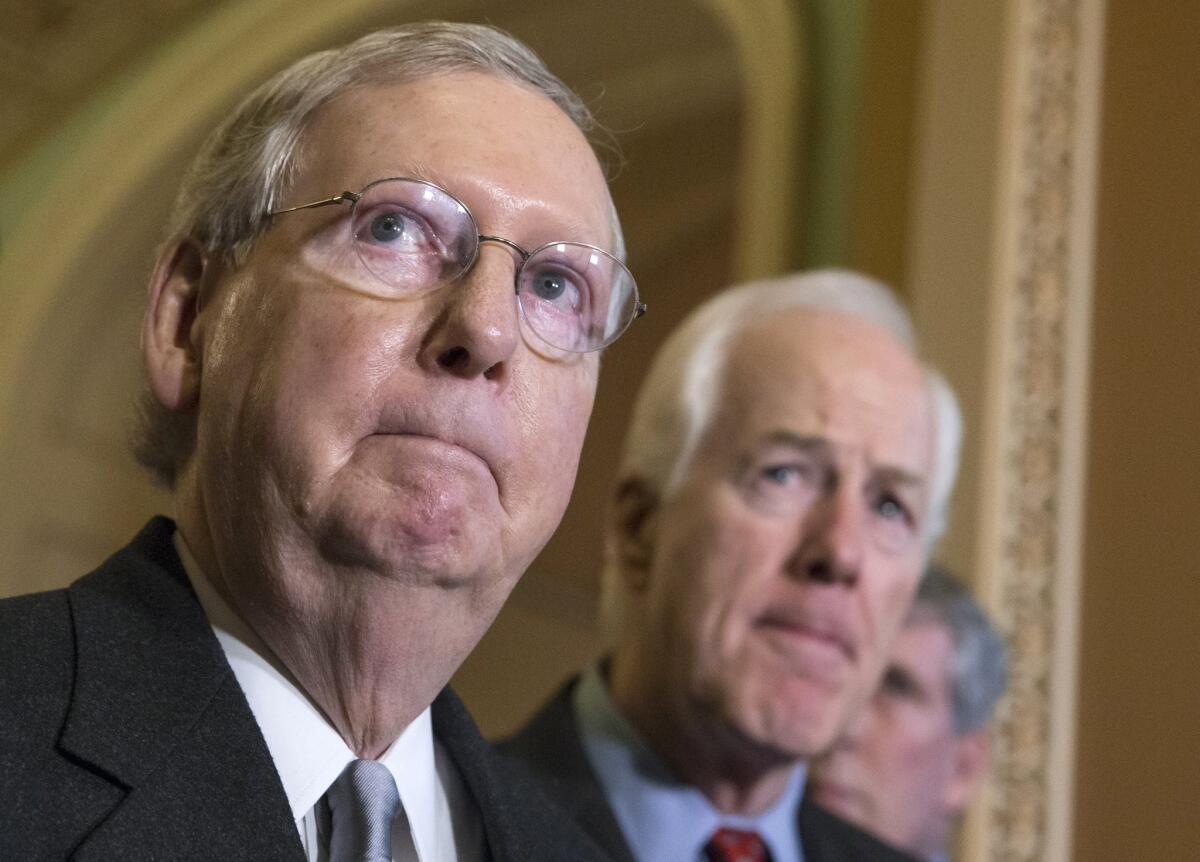Senate Republicans’ new plan to repeal Obamacare threatens even more widespread disruptions to Americans’ healthcare

- Share via
Unable to advance legislation to repeal and replace the Affordable Care Act, Senate Republicans now are looking at an alternative that would cause even more widespread disruption to the nation’s healthcare system and throw millions more Americans off the insurance rolls.
Senate Majority Leader Mitch McConnell’s bid to salvage the GOP’s Obamacare campaign by voting on a bill that would repeal only major parts of the current law without a replacement has won the endorsement of President Trump and some conservative lawmakers.
But it was quickly losing support Tuesday morning among key Republican senators, including Maine Sen. Susan Collins and West Virginia Sen. Shelley Moore Capito, both of whom said they would not back such an approach.
“I cannot vote to repeal Obamacare without a replacement plan that addresses my concerns and the needs of West Virginians,” Capito said in a statement.
An independent analysis of the “repeal-and-delay” approach by the nonpartisan Congressional Budget Office earlier this year concluded it would lead to 32 million more uninsured Americans over the next decade.
That is some 10 million more than the Senate repeal-and-replace plan that was scuttled Monday night, which was projected to increase the number of uninsured by 22 million by 2026.
At the same time, repealing major planks of Obamacare without a replacement would cause insurance premiums to spike by 20% to 25% next year for Americans who rely on insurance marketplaces, budget analysts concluded.
And premiums would double by 2026, according to the report.
Similar warnings came from across the nation’s healthcare system earlier this year when Republicans contemplated a straight repeal bill that followed the template of a “repeal-and-delay” plan that Congress sent President Obama in 2015 and which he subsequently vetoed.
“Delaying such a replacement could create unacceptable instability in the insurance market jeopardizing the healthcare of more than 20 million Americans — many of whom are cancer patients and cancer survivors with a preexisting condition,” Chris Hansen, head of the American Cancer Society’s advocacy arm said in January.
Even many leading Republican senators have voiced major concerns about repealing the current law without some replacement.
“Congress should replace and repeal at the same time, which requires figuring out how to replace it before fully repealing it,” Senate health committee chairman Lamar Alexander (R-Tenn.) said in December.
Essential Washington: Full coverage of the Trump administration »
More to Read
Get the L.A. Times Politics newsletter
Deeply reported insights into legislation, politics and policy from Sacramento, Washington and beyond. In your inbox twice per week.
You may occasionally receive promotional content from the Los Angeles Times.












